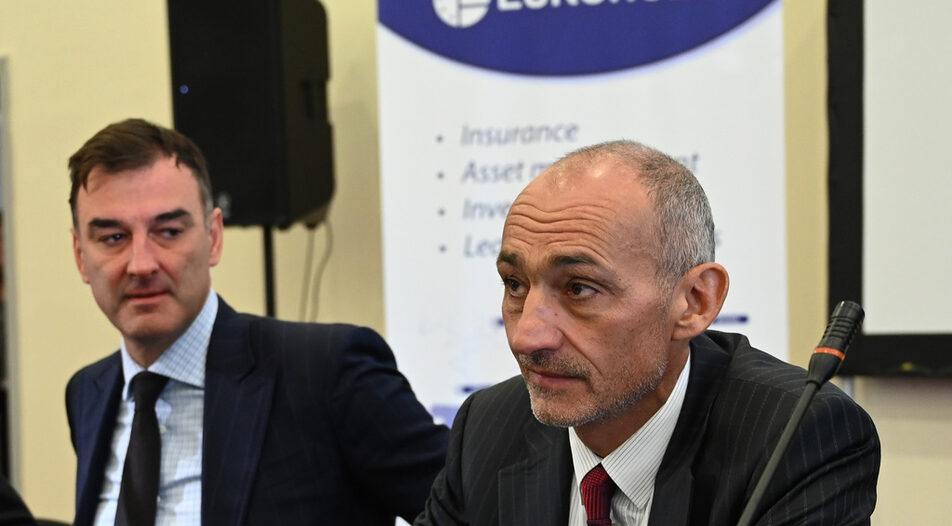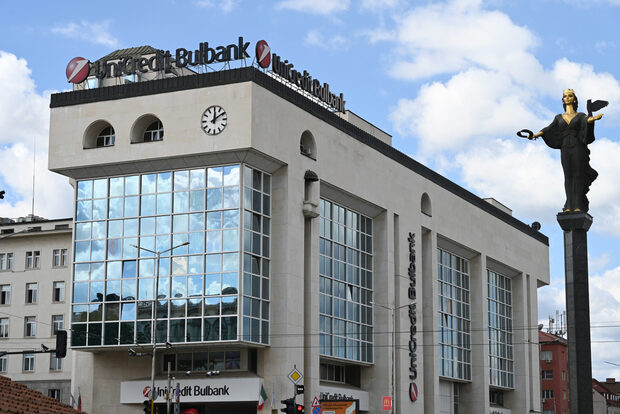- Eurohold complained of pressure and a hostile takeover attempt made with the support of officials of Romania's financial watchdog
- This happened days after ASF said it found a significant problem with the solvency of Euroins Romania estimated at hundreds of millions of euro
- Eurohold claims that Euroins Romania, part of its unit Euroins Insurance Group (EIG), is financially stable and is trying to draw support in Bulgaria and Europe
In mid-February, Bulgarian insurance company Euroins accused key officials of Romania's non-banking regulator ASF of putting undue pressure on it for years and even orchestrating a hostile takeover attempt. EIG, which is the leader in terms of premium income on both the Romanian and Bulgarian markets, has decided to play va banque. Its statement comes as a reaction to findings from a supervisory inspection that could quickly put Euroins Romania into administration proceedings.
What happened in short is that the owners of the Euroins group were threatened with losing control if they do not raise the insurer's capital by hundreds of millions of euro. However, they claim that the company is in excellent financial health and the numbers have been manipulated. Besides, Bulgaria's Financial Supervision Commission (FSC), which regulates Euroins' activities at a group level, was not notified of the ASF's inspection.
Euroins has chosen a defensive strategy, but even if it is successful, the company could face a pretty angry regulator soon. According to the chairman of the supervisory board of Euroins' parent company Eurohold, Assen Hristov, behind the coordinated attack against the company are Christian Rosu, the departmental vice president for insurance at ASF, and Valentin Ionescu, a director at the regulator, and several other employees.
"We accuse these people of knowingly exceeding their official powers, of misleading the board of the regulator by providing false and distorted information. Also, we claim that people who are close to the bankrupt City Insurance company are attempting to take over Euroins," Hristov said for the first time in an unpublished interview for the Romanian website Financial Intelligence sent to Capital Weekly by the company's PR agency on February 11. In the following hours and days, Hristov repeated his statements to other media, including the Bulgarian National Television.
According to Hristov, the problems began in 2019 with Euroins's refusal to acquire the then-leading City Insurance - a company that subsequently went bankrupt in 2021 with accusations of spectacular accounting fraud. Hristov says that a takeover offer then came from "a person subsequently appointed by Mr. Rosu as his adviser", following pressure and invitations, which led to a meeting with one of the shareholders of City Insurance. "At it, I received an official proposal for Euroins to acquire City with the addition that we had better agree because otherwise we have no choice. In response to my question "How will this go through the regulator?" I was told that "Mr. Rosu will do the right thing and provide support," says Assen Hristov. After these events, according to Hristov, the company was flooded with inspections.
A 400 million euro gap
Regardless of how this plot unfolds, Euroins faces a concrete, perhaps existential, threat. The supervisory report from the Romanian regulator contains startling numbers that together result in a sum of more than 400 million euro missing. At the same time, the total assets of Euroins Romania are of a similar size which makes all this difficult to understand.
According to unofficial information obtained by Capital Weekly, Euroins's problem in Romania is much due to the regulator's recommendation to change the reinsurer of part of its portfolio, as ASF considers the reinsurer unacceptable for the company's balance sheets under both local law and the Solvency II directive - the harmonised regulatory framework for insurance firms in the EU.
The company has agreed, even though it said the contract met applicable standards and was accepted by other regulators. The report is preliminary and Euroins can challenge the findings, although communication with the ASF seems difficult now. The other thing that the insurer is trying to do is to draw attention to the conflict in both Bulgaria and Europe.
The European Bank for Reconstruction and Development is a shareholder in Euroins and the insurer's parent company Eurohold acquired the assets of Czech energy group CEZ in Bulgaria with financing from a consortium of the country's largest banks, so it can be assumed that the balance sheets of Euroins have been scrutinized by many.
Windy Peak
In the EU, internationally operating insurers are supervised at а group level. In Euroins's case, Bulgaria's FSC plays a key role in the so-called supervisory collegium. However, the FSC was not informed by the ASF about a supervisory inspection being carried out. In addition, the FSC explained that so far, in its role as supervisor of EIG at the group level, it has not found any problems with the solvency of EIG's companies.
All this makes it quite likely that the looming danger of Euroins Romania going into administration will be postponed at least until the supervisors in both countries clarify their positions. But even if the storm subsides, this does not mean that it will go away.
- Eurohold complained of pressure and a hostile takeover attempt made with the support of officials of Romania's financial watchdog
- This happened days after ASF said it found a significant problem with the solvency of Euroins Romania estimated at hundreds of millions of euro
- Eurohold claims that Euroins Romania, part of its unit Euroins Insurance Group (EIG), is financially stable and is trying to draw support in Bulgaria and Europe
In mid-February, Bulgarian insurance company Euroins accused key officials of Romania's non-banking regulator ASF of putting undue pressure on it for years and even orchestrating a hostile takeover attempt. EIG, which is the leader in terms of premium income on both the Romanian and Bulgarian markets, has decided to play va banque. Its statement comes as a reaction to findings from a supervisory inspection that could quickly put Euroins Romania into administration proceedings.











